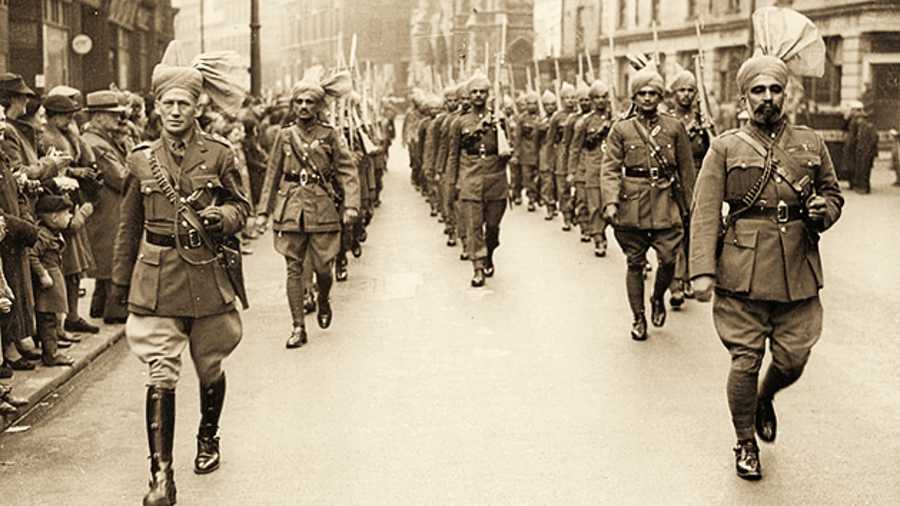Book name: The Indian Contingent: The Forgotten Muslim Soldiers of the Battle of Dunkirk
Author: Ghee Bowman
Publisher: Macmillan
Price: Rs 699
The story of the Indian participation in the two Great Wars has acquired a fair degree of academic attention in recent years amid controversies over the need to correct what are deemed to be racialized renditions of both wars in Western film and popular culture. Ghee Bowman, however, picked his side in the debates on Christopher Nolan’s ‘whitewashing’ of Dunkirk in 2017 from a slightly different position. While the film confirmed his broader unease with conversations in the British popular media regarding the participation of ‘Muslims’ in the two World Wars, his own encounter with an Indian Contingent known as Force K6, which was involved in the European theatres of the Second World War and in the British Home Front between the years 1940-44, was serendipitous. While working on a project exploring the multicultural past of Exeter where he lives, Bowman discovered a series of visual records of several Indians in uniform who made Exeter their home years after their contingents disbanded and returned to India in 1944. After a long and painstaking trail search that began at the Imperial War Museum in London and continued in around thirty-five different archives across Britain, France, Germany, India and Pakistan, Bowman was able to put together the remarkable story of an Indian Contingent that bore the historical markers of a complex global war that not only determined fates of nations on the battlefields but also of people in remote corners of the world who hadn’t stepped out of their villages before military recruiters entered their homes and changed their lives forever.
Force K6 was the name of a cluster of Animal Transport Companies that were formed in the later months of 1939 in anticipation of transport and logistical requirements on the snowbound supply routes to military posts along the Franco-German borders and in Belgium. These Animal Transport Companies were composed largely of ‘muleteers’ or mule drivers and service providers such as bellows-boys, blacksmiths, hammermen, farriers, cooks, dhobis and so on. Each company would be headed by British Commissioned Officers but below them would be a Viceroy’s Commissioned Officer who would often be of Indian origin and, at times, a veteran who had served in the Great War. The presence of this Indian leadership not only helped the Royal Indian Armed Service Corps find recruits at a time when the Indian political leadership was deeply divided on its support to the British war effort but it also helped Bowman to reconstruct this very significant story from the war diaries and private papers they left behind. The 1,723 men who landed in Marseilles in December 1939 were recruited largely from the villages of Chakwal, Campbellpur and Jhelum near the Army headquarters at Rawalpindi. The Pothwar plateau, as this region was geographically known, was a prime recruitment zone for the British Indian Army ever since the wars against Abyssinia in 1868 and Burma in the late 1880s. In the Great War, about six million Indians served in the trenches of France, Gallipoli and East Africa and recruitment from this region remained a dominant practice as it was home to the prized “martial races” or the “square-shouldered athletic Mussulmans” of the Punjab.
Bowman takes us through the journeys of these men from the point of their recruitment in the North-West Frontier Province of British India to their landing in Marseilles, through their dispersal to remote military posts in the central and the northern provinces of France, their tortuous manoeuvres amid the blood and gore-stained months of the Blitzkrieg and the evacuation at Dunkirk and, finally, their three-year-run at the British Home Front. If this is the broad arc of his narrative, the points at which it sparkles with new research and insight are the stories of the 22nd Company whose men were trapped in France and, later, picked up by Germans and thrown into camps, into lives of hard labour and desolation. We would have known little of these men had it not been for the war diaries of their Indian Commissioned Officers. Hundreds of thousands of letters written by their families to them have been left unopened to this day. The rest of Force K6 was repatriated to Britain to serve the Home Front in small towns in Cornwall, Colchester and Lairg in the Scottish Highlands. Bowman digs deep into their individual lives in these rural hinterlands of Britain and brings us stories of rare intimacies, friendship and camaraderie between them and the locals. Several of these men stayed back, married local women, and made their homes in Britain long after their contingent returned to a divided India.
Towards the end, Bowman draws our attention to the politics of remembering and forgetting and the capricious moves of collective memory in our troubled times. His book might have been directed toward readers in Britain trapped forever in a ‘tabloid’ version of the Second World War but Bowman’s attempt to complicate that story and normalize the human affinities between the ‘Mussulman’ and the Scottish Highlander carries a message that resonates with many of us who worry about the cultural and religious fault-lines that threaten to rupture our fragile polity.










